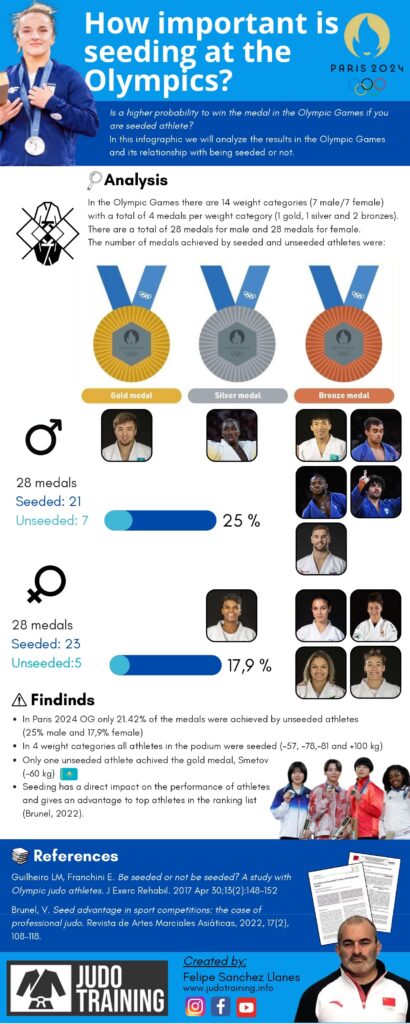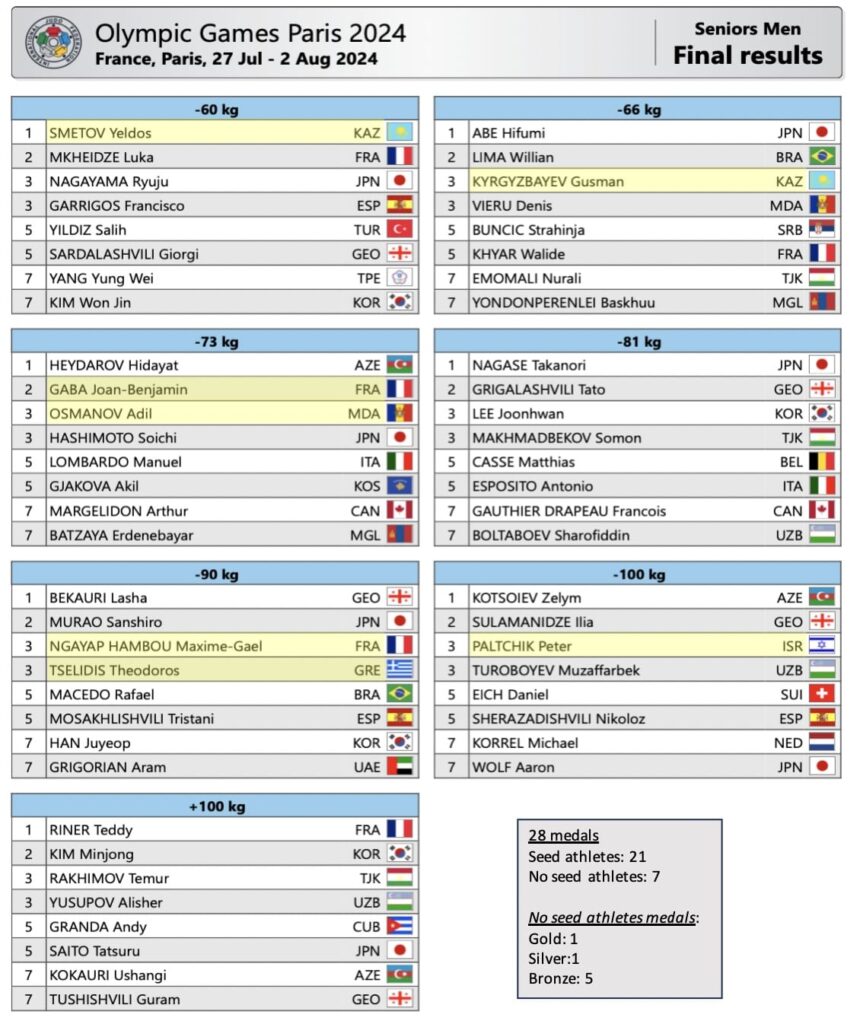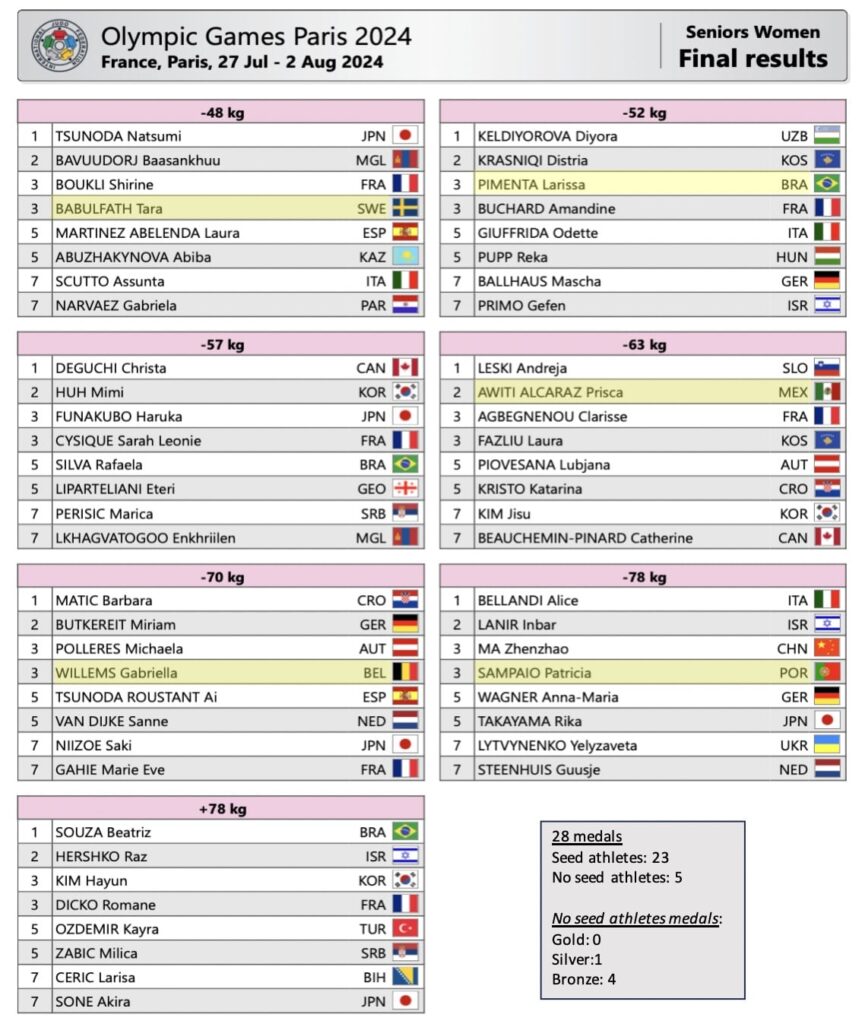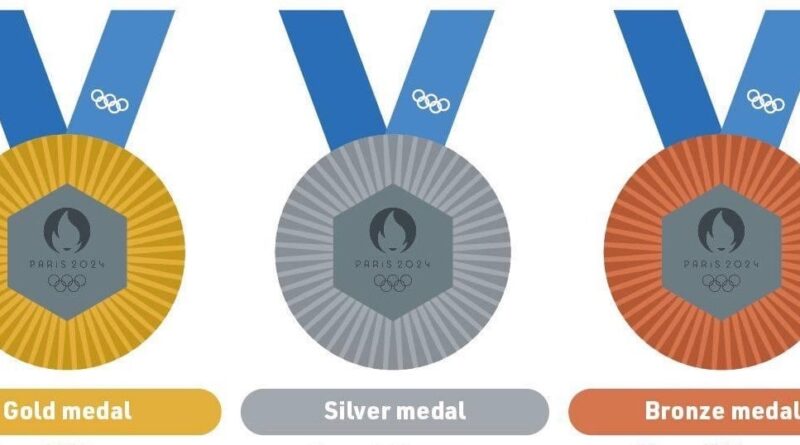How important is seeding at the Olympics?
The four-times World Champion Uta Abe was not seeded at the 2024 Paris Olympic Games, and she failed to win her second Olympic gold medal. Is this result the consequence of not being seeded? Nobody would say so but Uta was clearly at a disadvantage by not being seeded.
By way of a reminder, eight athletes are seeded in accordance with their respective positions on the IJF World Ranking List (IJF WRL). The highest entered athlete takes the number one spot followed by the next highest ranked athlete until all eight seeded positions are filled. The electronic draw first places the seeded athletes in pre-determined positions then randomly draws the remaining athletes until the line-up is complete. This process is repeated for each weight category, male and female.
In this infographic we analyze the results at the Paris Olympic Games and its relationship with being seeded or not.



Some papers (1,2) have investigated this topic before, calculating the probability to win the medal in the Olympic Games (1) and quantifying the advantage granted to seeds in the case of professional judo competitions (2).
In 2022 Brunel (2) concluded that seeding has a direct impact on the performance of athletes and gives an advantage to top athletes in the ranking list. This advantage for winning gold is rather limited but is quite significant for reaching other targets such as winning a medal or qualifying to the quarterfinal.
Guilheiro and Franchini (2017) (1) found that athletes seeded had a chance of 25.0% to 50.0% for males and between 12.5% to 50.0% for females to win an Olympic medal, resulting in an over- all probability of around 41.1% when all groups are considered.
REFERENCES

